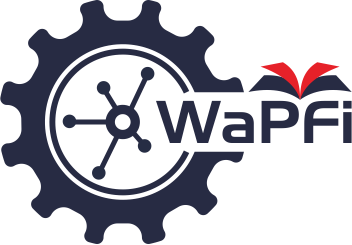Visualizing trend of 21st-century skills over the last 20 years: a bibliometric analysis
Abstract
Today, the challenges of the 21st century research landscape have given new status to the trends of the last twenty years. Thus, efforts need to be made to support and focus on this trend. This research was conducted by conducting bibliometric analysis on several types of documents, document sources, top contributing countries, top authors, top affiliations, top source titles, top relevant keywords or trends, research citations that include findings along with research recommendations, and visualizations on mapping the top research cited over the past twenty years on 21st century skills research. This research used descriptive quantitative methods with Scopus database metadata processed with Biblioshiny and mapping applications using VOSviewer with 183 documents. Trends in 21st century skills research in the last twenty years generated from bibliometrics showed several trends: 1) student-focused 21st century skills; 2) the top subject studied was engineering; 3) teaching, education, and curriculum on 21st century skills; 4) another subject studied was computing; 5) problem-solving-based learning; 6) STEM learning; and 7) computer-based learning.
Downloads
References
Afida, R. N. (2023). Literature Review: Peran Guru dalam Membangun Ketrampilan 4C Siswa dengan Pembelajaran Berdiferensiasi. In Prosiding Seminar Nasional Pascasarjana (PROSNAMPAS) (Vol. 6, No. 1, pp. 643-647).
Ahmi, A., & Mohd Nasir, M. H. (2019). Examining the trend of the research on extensible business reporting language (XBRL): A bibliometric review. International journal of innovation, creativity and change, 5(2), 1145-1167.
Amin, N. S., Rahmawati, A., Azmin, N., & Nasir, M. (2022). Pengembangan Pembelajaran Blended Learning untuk Meningkatkan Keterampilan Abad 21 Siswa SMAN 2 Kota Bima. JIIP-Jurnal Ilmiah Ilmu Pendidikan, 5(12), 5563-5567.
Asrizal, A., Yurnetti, Y., & Usman, E. A. (2022). ICT Thematic Science Teaching Material with 5E Learning Cycle Model to Develop Students' 21st-Century Skills. Jurnal Pendidikan IPA Indonesia, 11(1), 61-72.
Dakhi, O., JAMA, J., & IRFAN, D. (2020). Blended learning: a 21st century learning model at college. International Journal Of Multi Science, 1(08), 50-65.
Gürsoy, G. (2021). Digital Storytelling: Developing 21st Century Skills in Science Education. European Journal of Educational Research, 10(1), 97-113.
Indrawati, F. A., & Wardono, W. (2019, February). Pengaruh self efficacy terhadap kemampuan literasi matematika dan pembentukan kemampuan 4C. In PRISMA, Prosiding Seminar Nasional Matematika (Vol. 2, pp. 247-267).
Izhar, N. A., Ishak, N. A., & Baharudin, S. M. (2023). A Bibliometric Analysis of 21st Century Learning Using Scopus Database. International Journal of Learning, Teaching and Educational Research, 22(3), 225-240.
Julien, Heidi & Barker, S. (2009). How high-school students find and evaluate scientific information: A basis for information literacy skills development. Library & Information Science Research 31, 12-17
Khlaisang, J. & Koraneekij, P. (2019). Open online assessment management system platform and instrument to enhance the information, media, and ICT literacy skills of 21st century learners. International Journal of Emerging Technologies in Learning (Online), 14(7), 111.
Kuswandi, D., Kurniawan, C., Aulia, F., Wedi, A., Zulnaidi, H., & Nafi’a, M. Z. I. (2021). Visualizing Trend of 21st-Century Curriculum: A Bibliometric Analysis. In 7th International Conference on Education and Technology (ICET 2021) (pp. 38-44). Atlantis Press.
Latorre-Cosculluela, C., Suárez, C., Quiroga, S., Sobradiel-Sierra, N., Lozano-Blasco, R., & RodrÃguez-MartÃnez, A. (2021). Flipped Classroom model before and during COVID-19: using technology to develop 21st century skills. Interactive Technology and Smart Education, 18(2), 189-204.
Liang, Z., Mao, J., Lu, K., Ba, Z., & Li, G. (2021). Combining deep neural network and bibliometric indicator for emerging research topic prediction. Information Processing & Management, 58(5), 102611.
Marmoah, S., Gestiardi, R., Sarwanto, S., Chumdari, C., & Maryani, I. (2022). A bibliometric analysis of collaboration skills in education (2019-2021). Journal of Education and Learning (EduLearn), 16(4), 542-551.
Murray, O. T. & Nicole R. Olcese. (2011). Teaching and Learning with iPads, Ready or Not?. TechTrends, 55(6), 42-48.
Onyema, E. M., Deborah, E. C., Alsayed, A. O., Noorulhasan, Q., & Sanober, S. (2019). Online discussion forum as a tool for interactive learning and communication. International Journal of Recent Technology and Engineering, 8(4), 4852-4859.
Ozturk, O. (2021). Bibliometric review of resource dependence theory literature: an overview. Management Review Quarterly, 71(3), 525-552.
Qadir, J., Yau, K. L. A., Imran, M. A., & Al-Fuqaha, A. (2020). Engineering education, moving into 2020s: Essential competencies for effective 21st century electrical & computer engineers. In 2020 IEEE Frontiers in Education Conference (FIE) (pp. 1-9). IEEE.
Riowati, R., & Yoenanto, N. H. (2022). Peran guru penggerak pada merdeka belajar untuk memperbaiki mutu pendidikan di Indonesia. Journal of Education and Instruction (JOEAI), 5(1), 1-16.
Safitri, N. D., Darmayanti, R., Usmiyatun, U., & Nurmalitasari, D. (2023). 21st Century Mathematics Learning Challenges: Bibliometric Analysis of Trends and Best Practices in Shinta Indexed Scientific Publications. JEMS: Jurnal Edukasi Matematika Dan Sains, 11(1), 136-152.
Sahin, A., Ayar, M. C., & Adiguzel, T. (2014). STEM Related After-School Program Activities and Associated Outcomes on Student Learning. Educational Sciences: Theory and Practice, 14(1), 309-322.
Santika, I. G. N. (2021). Grand desain kebijakan strategis pemerintah dalam bidang pendidikan untuk menghadapi revolusi industri 4.0. Jurnal Education and development, 9(2), 369-377.
Saputri, V., & Herman, T. (2022). Integrasi Stem dalam Pembelajaran Matematika: Dampak Terhadap Kompetensi Matematika Abad 21. JPMI (Jurnal Pembelajaran Matematika Inovatif), 5(1), 247-260.
Singh, M. (2021). Acquisition of 21st century skills through STEAM education. Academia Letters, 2, 712.
SUWARDI, S. (2021). STEM (Science, Technology, Engineering, and Mathematics) Inovasi Dalam Pembelajaran Vokasi Era Merdeka Belajar Abad 21. PAEDAGOGY: Jurnal Ilmu Pendidikan dan Psikologi, 1(1), 40-48.
Tomczyk, Å., & Walker, C. (2021). The emergency (crisis) e-learning as a challenge for teachers in Poland. Education and Information Technologies, 26(6), 6847-6877.
Tupan, T. (2022). Analisis bibliometrik perkembangan potensi energi baru dan terbarukan di Indonesia menggunakan R Biblioshiny dan VosViewer. Daluang: Journal of Library and Information Science, 2(2), 71-81.
Van Laar, E., Van Deursen, A. J., Van Dijk, J. A., & de Haan, J. (2020). Determinants of 21st-century skills and 21st-century digital skills for workers: A systematic literature review. Sage Open, 10(1), 2158244019900176.
Wulandari, T. D., Widiyatmoko, A., & Pamelasari, S. D. (2022). Keefektifan pembelajaran ipa berbantuan virtual reality untuk meningkatkan kemampuan kognitif siswa SMP di abad 21: Review artikel. In Proceeding Seminar Nasional IPA (pp. 106-115).
Yadav, A., Hong, H. & Stephenson, C. (2016). Computational Thinking for All: Pedagogical Approaches to Embedding 21st Century Problem Solving in K-12 Classrooms. TechTrends, 60, 565–568.
Zainil, M., Kenedi, A. K., Indrawati, T., & Handrianto, C. (2023). The Influence of a STEM-Based Digital Classroom Learning Model and High-Order Thinking Skills on the 21st-Century Skills of Elementary School Students in Indonesia. Journal of Education and e-Learning Research, 10(1), 29-35.
Zheng, B., Warschauer, M., Lin, C. H., & Chang, C. (2016). Learning in one-to-one laptop environments: A meta-analysis and research synthesis. Review of educational research, 86(4), 1052-1084.






